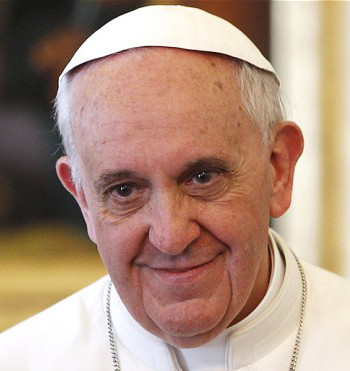by Patricia K. Townsend
Patricia K. Townsend is a board member of the New York State affiliate of Interfaith Power and Light, a religious response to global warming. Dr. Townsend is an environmental and medical anthropologist residing in Amherst NY.
As Pope Francis prepared to issue his encyclical Laudato Sii on June 18, some politicians called into question the appropriateness of his addressing climate change as a moral issue. On the contrary, I believe that it is the responsibility and practice of religious leaders of all faiths to speak up prophetically when they identify a problem that affects the common good.
Nearly 20 years ago a Presbyterian pastor invited me to lead a discussion of climate change for an adult study group in her Town of Tonawanda congregation. National and regional bodies of the Presbyterian denomination, like many other faith groups, had already taken a position on climate change, even though the scientific evidence was not yet as powerful as it is now. In order to make the issue more personal, I decided to ask the class to role play some of the victims of global climate change who had already been identified at that time. The ones that stick in my memory were elderly residents of a Chicago apartment building who died because they were too poor to afford the electricity to run their air conditioning during a heat wave, Bangladeshi farmers whose near-sea-level fields were flooded, and Ethiopian and Somali children starving during a drought.
We then acknowledged that those who were suffering most from new climate extremes were the poor and marginalized. They were not the same people whose carbon pollution was responsible for the human-caused portion of global warming. This profound injustice is one that all religions can acknowledge.
Locally the faith community has taken action to combat global warming. Several Catholic schools and many church buildings, including First Presbyterian in Youngstown, Amherst Presbyterian, the Unitarian Universalist Church of Amherst, and North Presbyterian in Williamsville have covered their roofs with solar panels that produce much of the electricity that they use and reduced their energy costs. Other congregations have made efforts to retrofit their worship spaces to be as energy-efficient as they can. Others have helped needy people improve home insulation, reducing their contribution to climate disruption.
The message of the papal encyclical resonates beyond the Catholic Church with people of other faiths. Pope Francis speaks as well to those of little faith who nonetheless have an ethic of care for the earth and all its creatures in this and future generations.

